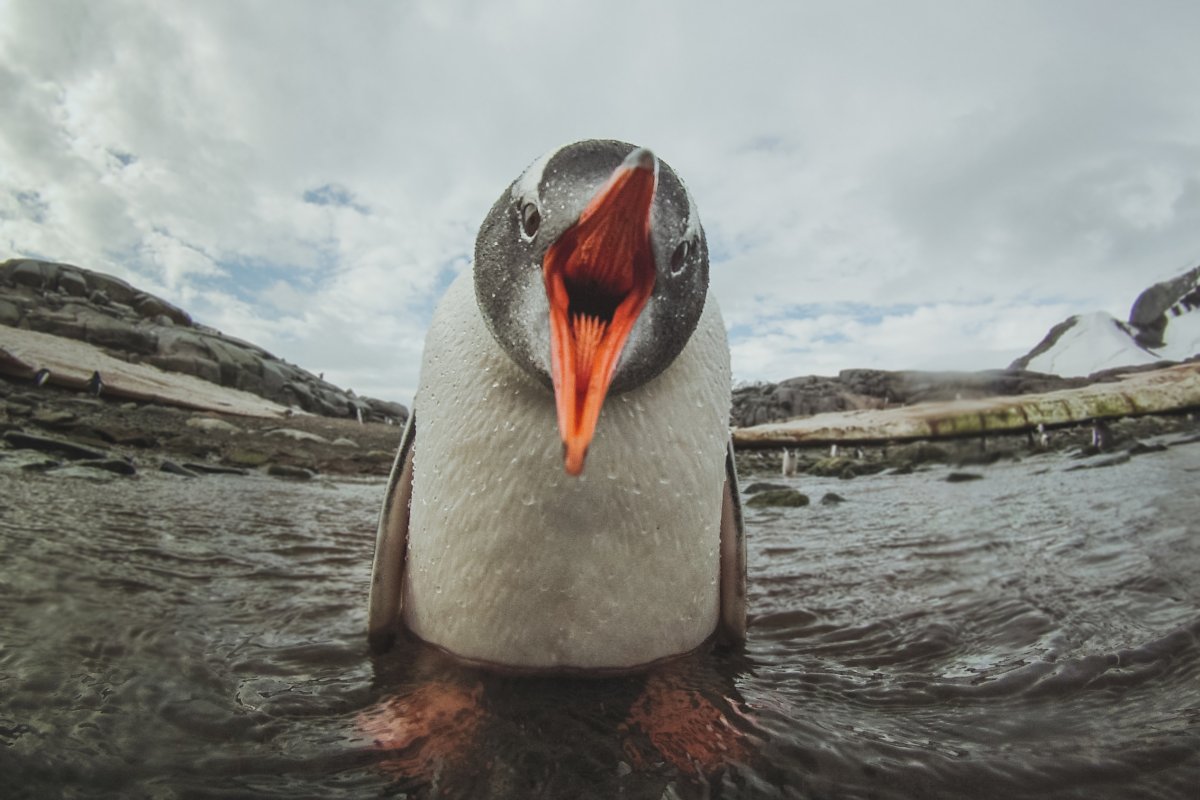Penguins at a zoo in Japan have been caught on camera turning their beaks up at the cheaper fish being offered to them.
The Hakone-en Aquarium, home to over 30,000 individual animals, began feeding its marine life cheaper food in the face of huge inflation and price rises in Japan. However, the animals don't seem to like the budget options on offer. In a video from ANN News, the king penguins can be seen turning their beaks away from their new menu options, and the otters are shown to sniff the fish before running away.
According to CNN, the marine life were previously fed with Japanese horse mackerel, also known as aji. However, in the last year the price of aji has increased by 20 to 30 percent, meaning that the aquarium has had to resort to buying cheaper feed to feed their animals with. They switched to common mackerel, or "saba". The animals can seemingly tell the difference from smell alone, and aren't happy about it.
"They take it into their mouths at first, but then they decide they don't like it and drop it," aquarium head keeper Hiroki Shimamoto told AFP.
"They sense something is off."

Getting creative, the aquarium workers have had to think outside the box to get the animals to warm to their new diets, even mixing the saba with a small amount of their preferred aji to tempt them into eating.
"Ideally, they would like to have a full aji, but they are patiently eating [the mix of] mackerel," aquarium keeper Hiroki Shimamoto told CNN affiliate TV Asahi.
Online, people have found this reaction hilarious.
"Watching a penguin be unimpressed by his food was not on my 2022 bingo card," wrote one commenter.
"Spoiled little twerps," said another.
Animals having a preference for certain foods over others has been previously studied, with primates, rodents and even bees being observed to have individual preferences for different foods. They can tell the difference between types of food the same way we can: taste and smell.
Penguins have a decent ability to smell, and have a larger olfactory receptor in their brains than most land birds. They can smell dimethyl sulfide in the water, which is a compound associated with foraging grounds, and can distinguish the difference between colony-associated scents like feces and feathers compared to neutral scents.
Otters, too, have an acute sense of smell, which is thought to help them differentiate between safe and contaminated shellfish.
So, while the penguins and otters aren't being snobby about the price, they can both likely smell the difference between their old food and their new diet, and perhaps don't appreciate the change.
Hakone-en Aquarium is also attempting to reduce costs by halving their number of circulation pumps from two to one.
"We could raise the admission fee to the aquarium and fix this issue, but we would like to do our best to keep our facility a comfortable place for our guests to visit. We do not plan on raising admission prices," Shimamoto told TV Asahi.
Uncommon Knowledge
Newsweek is committed to challenging conventional wisdom and finding connections in the search for common ground.
Newsweek is committed to challenging conventional wisdom and finding connections in the search for common ground.
About the writer
Jess Thomson is a Newsweek Science Reporter based in London UK. Her focus is reporting on science, technology and healthcare. ... Read more
To read how Newsweek uses AI as a newsroom tool, Click here.






